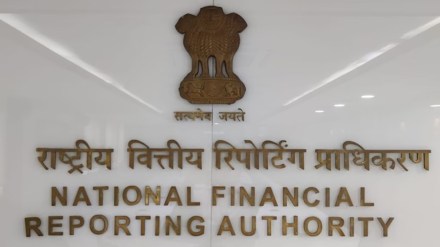By Shruti Rajan
In response to large financial frauds, the National Financial Reporting Authority (NFRA) was established by way of the Companies Act in 2018 to improve the quality of financial reporting and auditing, and oversee compliance with accounting and auditing standards. The NFRA is also tasked with rule-making and investigative powers in relation to audit and accounting. Since its creation, the concurrent turf occupied by the NFRA and the Institute of Chartered Accountants of India (ICAI), a professional body set up under the Chartered Accountants Act, 1949, has been a subject of considerable legal analysis and industry debate.
The newest addition to these points of difference is the NFRA’s recommendation of 40 standards on auditing (SAs) for limited liability partnerships (LLPs), which currently apply to companies. Scheduled to come into effect in April 2026, the move aims to enhance financial transparency and accountability among LLPs but has sparked concerns from various quarters, including the ICAI, on its overall impact on the compliance ecosystem.
LLPs occupy a unique space in India’s corporate landscape, and are often seen as offering the advantages of limited liability along with the operational flexibility of partnerships. The NFRA’s proposed audit standards aim to address perceived gaps in the financial reporting of LLPs, especially those with significant economic footprints. By aligning LLP audits with the standards currently applicable to companies, the reform seeks to: a) ensure greater accountability in financial reporting; b) enhance investor and stakeholder confidence; and c) bring LLPs’ compliance frameworks closer to global best practices.
The NFRA has also emphasised that these measures will provide clarity and uniformity in audit practices, ensuring LLPs adhere to transparent and reliable financial disclosure norms. Simply put, the reforms suggested by the NFRA require the following:
- LLPs will have to adhere to 40 SAs and related standards on quality management (SQMs), encompassing requirements such as joint audits and specialised reporting standards (e.g. SA 800 for special-purpose audits).
- Additionally, to comply with these requirements, LLPs will need to enhance internal documentation and quality management processes to align with standards such as SQMs, which are presently tailored for larger, corporate entities. This alignment may require significant restructuring of internal systems.
- LLPs will also need to adopt advanced auditing practices that potentially require training or outsourcing to meet the technical requirements of the new standards.
While implementing these measures may initially increase compliance costs, particularly for smaller LLPs, the long-term benefits are expected to significantly enhance the corporate governance framework which aligns with the broader mandate of the NFRA as a regulator.
However, the ICAI has flagged some key concerns in relation to these new changes with respect to SA 299, SA 600 and SA 800, SA 810, SA 805, and SQMs. The ICAI has mentioned explicitly in meetings with the NFRA — held in relation to the revision of these SAs — that smaller entities are currently primarily audited by smaller audit firms. However, under the revised SA 600, the principal auditor may choose competent auditors that may lead to market concentration in the hands of large audit firms as smaller players may struggle to meet the technical requirements and affiliations with large firms. The ICAI has said that implementing quality management standards might impose undue pressure on smaller firms, which would ultimately impact their operational costs. However, the most important concern of the ICAI is the NFRA’s ability to prescribe auditing standards, which the former believes may exceed the powers conferred by the Companies Act, 2013. A large part of the jurisdictional tussle between these two bodies has emanated from the ICAI seeing itself as the primary body responsible for setting auditing standards.
The conflict between the ICAI and the NFRA regarding jurisdictional overlap over multiple issues is not new. In Harish Kumar TK vs NFRA, the National Company Law Appellate Tribunal defined the purpose and stated that the ICAI is the statutory body which regulates the profession of chartered accountants in India. The ICAI was set up by an Act of Parliament to regulate the professionalism of its members, including auditors in India, whereas the NFRA’s objective is to act as an independent regulatory body for improving the transparency and reliability of financial statements and information of companies in India after a statutory audit by chartered accountants. Changes like those suggested for LLPs are certainly a step in that direction.
Any change in regulation comes with short-term compliance costs, and the NFRA’s proposed reforms are an example of this. It will be important for law-making to move in a collaborative direction to improve the overall quality and coverage of regulation and ensure better disclosure standards instead of getting embroiled in a tussle for primacy. The effective coexistence of the NFRA and the ICAI within the Indian ecosystem is essential to strengthen the accounting and auditing framework, ensuring it is resilient and trustworthy for all stakeholders.
Co-authored with Akshar Bharadwaj, associate-Corporate, Trilegal.
The writer is partner, Corporate & Financial Regulatory, Trilegal.
Disclaimer: Views expressed are personal and do not reflect the official position or policy of FinancialExpress.com. Reproducing this content without permission is prohibited.
